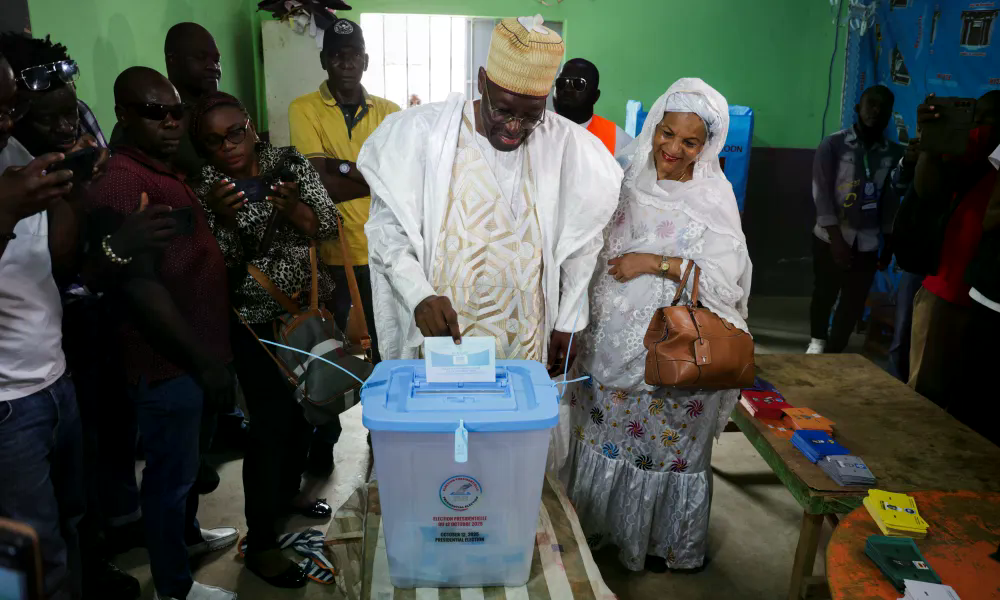
Cameroon held a presidential election on Sunday, which could result in the country’s longest-serving head of state, Paul Biya, extending his rule for another seven years. The 92-year-old incumbent is expected to secure an eighth term as president, marking his 43rd year in power.
Biya faced 11 opponents in the single-round election, including former government spokesman Issa Tchiroma Bakary, 79, who has gained significant attention with a campaign advocating for the end of Biya’s long tenure. Bakary, once a close ally of Biya, resigned from the government in June to join the opposition and is seen as the strongest challenger after another prominent candidate, Maurice Kamto, was excluded from the race.
Despite the political shift, analysts believe Biya is likely to win due to his control over state institutions and a fragmented opposition. Reports from Yaounde highlighted that voters, regardless of their preference, are hoping for a leader capable of addressing the nation’s pressing challenges.
Al Jazeera correspondent Ahmed Idris noted that while Cameroon’s GDP has shown growth since 2023, issues such as high unemployment, falling commodity prices, and rising poverty continue to affect citizens. Additionally, there is a need for substantial investment in new infrastructure.
Over eight million people were registered to vote, including more than 34,000 overseas voters. The Constitutional Council is scheduled to announce the final results by October 26.
Cameroonian political scientist Stephane Akoa warned that the ruling party has significant resources at its disposal to influence the outcome. He described the campaign as more dynamic than previous elections, suggesting the results may be unpredictable.
Francois Conradie, a lead political economist at Oxford Economics, acknowledged the possibility of a surprise but predicted Biya would likely win due to a divided opposition and strong electoral support. He noted that Biya has maintained power by effectively managing his adversaries, even if he is not fully engaged with current events.
Biya, who has won every election in the past two decades with over 70% of the vote, conducted a low-profile campaign, making only one public appearance in May. His sole rally in Maroua drew a small crowd compared to Bakary’s large gathering in the same city.
Biya’s health remains a topic of speculation, and he frequently spends time in Europe, delegating daily governance to party officials and family members.
Cameroon is Central Africa’s most diverse economy, known for its oil and cocoa production. However, many citizens face economic hardship, with about four out of ten living below the poverty line, according to the World Bank. Common complaints include high costs of living, unemployment, and inadequate access to clean water, healthcare, and education.
Hassane Djbril, a driver in Yaounde, expressed frustration over the lack of jobs and plans to support Bakary. Similarly, Herves Mitterand, a mechanic in Douala, voiced dissatisfaction with the current government, stating that conditions have worsened and that real change is needed.
The election took place amid ongoing conflict between separatist groups and the government in the English-speaking Northwest and Southwest regions, which has persisted since 2016.


